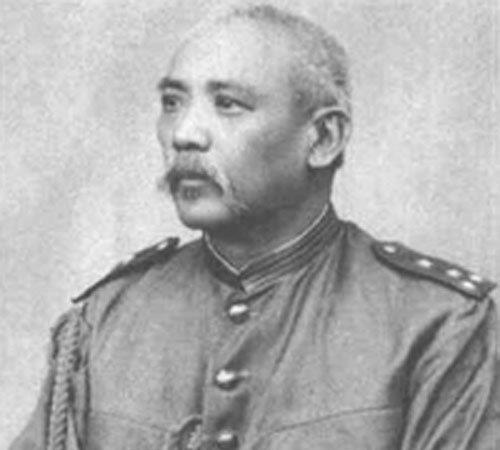After Yuan Shikai ended the Qing Dynasty, China also ended the feudal society that lasted for more than two thousand years and officially entered the Republic of China period. Although he arrived in the Republic of China, Yuan Shikai, a tyrant, still wanted to be emperor. This counter-current was opposed by the people of the whole country, and Yuan Shikai, who had been emperor for 83 days, had to abolish the imperial system. However, not long after, that is, in June 1916, Yuan Shikai, a generation of tyrants, died of illness in Beijing.
As soon as Yuan Shikai died, China fell into a situation of warlord chaos, and powerful figures in various provinces and localities rose up and wanted to enter Beijing, which led to a fight between warlords everywhere, known in history as warlord scuffle. At that time, the stronger warlords were the Anhui warlords, the Fengzhi warlords, the direct warlords, and some small warlords in various places.

As warlords fought a series of battles for territory, Sun Yat-sen led the National Revolutionary Army to rise in Guangzhou. A group of idealistic and ambitious young people was recruited, and the unit was called the National Revolutionary Army.
When the time was ripe, the National Revolutionary Army swore an oath to the Northern Expedition in Guangzhou, and 100,000 troops went north, under the leadership of the commander-in-chief Chiang Kai-shek, out of Hubei, Jiangxi and other places, known in history as the First Northern Expedition. After defeating Sun Chuanfang, the National Revolutionary Army occupied important cities such as Nanjing, Shanghai, and Wuhan. In the following, the Second Northern Expedition War was launched, and Feng Yuxiang and Yan Xishan in the north also joined the National Revolutionary Army, and with their joining, it was like a tiger adding wings to the National Revolutionary Army. Soon, the National Revolutionary Army, under the leadership of Chiang Kai-shek, defeated the most powerful Warlord of the Feng clan. Zhang Zuolin fled back to the northeast overnight, not expecting to be killed by the Japanese on the road.
After Zhang Zuolin's death, his son Zhang Xueliang became his successor, but Zhang Xueliang chose to submit to Chiang Kai-shek in the face of the Japanese who were staring at the tiger. At this point, the National Revolutionary Army under the leadership of Chiang Kai-shek became the unification of the motherland, and Chiang Kai-shek's rights at this time also reached its peak.
Although the old warlords were eliminated by Chiang Kai-shek, a new warlord emerged. At that time, the northwestern warlord Feng Yuxiang, the Jin warlord Yan Xishan, the Gui warlord Li Zongren, the Guangdong warlord Chen Jitang, the Dian warlord Long Yun, and the Sichuan warlords. These people were only superficially subservient to Chiang Kai-shek, plus they had soldiers in their hands. Therefore, Chiang Kai-shek also regarded them as his henchmen.
So later, a series of battles such as the Chiang-Gui War, the Chiang-Tang War, the Liangguang Incident, the Fujian Incident, and the Central Plains War broke out, all of which were fought by local warlords and Chiang Kai-shek. Although some were eliminated by Chiang Kai-shek in these processes, some continued to exist. These warlords, during the War of Resistance, also served as commanders of various theaters. Like Yan Xishan, who is more familiar to everyone, he served as the commander of the second theater after the outbreak of the War of Resistance Against Japanese Aggression, and Feng Yufan also served as the commander of the theater, but his term of office was not long. Long Yun also supported the cause of the War of Resistance in Yunnan and organized troops to fight in Yunnan. There was also the Gui warlord Li Zongrenjie, who served as the commander of the Fifth Theater during the War of Resistance Against Japanese Aggression.
It can be said that in the face of the Japanese invasion, warlords throughout the country threw themselves into the cause of the War of Resistance, including the warlords of the Beiyang period, although they did not contribute to the cause of the War of Resistance, but in the face of the invitation and even coercion of the Japanese Kou, they did not choose to be traitors. It can be seen that on the issue of national righteousness, the thinking of warlords in various parts of the Republic of China is still relatively unified, and they all prefer to die than to be traitors.
However, in the eight-year cause of the War of Resistance Against Japanese Aggression, among the many warlords of the Republic of China, there was only one warlord who really had the title of a famous anti-Japanese general, and he was li Zongren, a warlord of the Gui clan. Friends who may be familiar with the history of the War of Resistance Against Japanese Aggression know that after the outbreak of the War of Resistance Against Japanese Aggression in an all-round way, Li Zongren served as the commander of the Fifth Theater and successively commanded the Battle of Taierzhuang, the Battle of Wuhan, the Battle of Suizao, and the Battle of Henan, and made certain contributions to the victory of the War of Resistance Against Japan. If it were not for the fact that Chiang Kai-shek was worried that Li Zongren's power in the Fifth Theater was getting bigger and bigger, he had to transfer him to the rear. I am afraid that Li Zongren will make many important contributions to the cause of resisting Japan.
Although Chiang Kai-shek deliberately hid him, in the history of the eight-year War of Resistance Against Japanese Aggression, Li Zongren still left brilliant achievements, so Li Zongren was also known as a famous anti-Japanese general by the world.